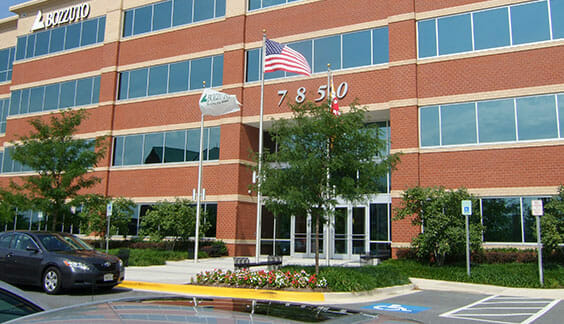Workers’ compensation is a system developed by state governments to provide financial assistance to individuals injured in the course of their job. Before workers’ compensation laws were passed, compensation for on the job injuries were settled through lawsuits which were very difficult to win and unfairly left the injured worker without income or funds during recovery. To expedite the process of compensating injured workers, a program was developed that required all employers to have insurance to be used for workers’ compensation.
Determining whether a worker is entitled to funds has been streamlined by creating a standardized set of qualifications which must to be met before any money is released. This is how the current system works, and though it is better than the old, it can still be difficult and complicated to successfully file a workers’ compensation claim.
Learn more about our Maryland Workers’ Compensation services.
Workers’ Compensation Coverage
The Maryland Workers’ Compensation Commission has a wealth of resources to help you understand who and what sorts of injuries are covered. Here we have outlined some important factors to be aware of.
Accidental Personal Injury
The MD statute on workers’ compensation states that an “accidental injury” is one “that arises out of and in the course of employment” (Md. Code Ann. § 9-101). This simple phrase clearly illustrates the terms that define a covered injury.
Accidental:
The event must have been sudden, unusual, and unexpected.
“out of…employment”:
This means that the environment created by a particular job, profession, or task contributed in some way to the accident. A simple example would be an electrician suffering from an electric shock, or a roofer injured in a fall.
“in the course of employment”:
The injury must have occurred during the period of time when the employee was at work, when the employee was at the employer’s place of business or such other location as may have been designated by the employer, and while the employee was performing their job duties or something related to them when the injury took place.
The injury cannot have been sustained on the way to or from work, over the weekend, or in any situation not directly tied to your job and responsibilities. There are two other factors set out in the statute:
Willful or Negligent Act:
If the injury was caused purposely or by the negligence of another, it may be covered.
Occupational Disease:
Exceptions to the accident requirement are occupational diseases. These are illnesses caused by the nature of the circumstances surrounding the worker’s job. Some forms of skin, eye or lung disease may have been caused by long term exposure to chemical solvents or other solutions used on the job. Conditions such as these may result in the employee’s being covered by workers’ compensation even though there was no specific “accident;” they are covered as occupational diseases. Blacklung, hearing loss, and lead poisoning are fairly common examples.
Employees Only
A clearly defined employer-employee relationship must be present for any Maryland workers’ compensation benefits to be applied. As an employee, you have a responsibility to your employer to be careful in your job and never take advantage of workers’ compensation benefits. In turn, your employer has a responsibility to provide a safe work environment and provide coverage for his employees (Md. Code Ann. § 9-407)
Independent Contractors:
If you are an independent contractor, you will not be entitled to Maryland workers’ compensation benefits.
Minors:
Minors are covered as long as employment can be proven. This is applicable even in cases where the minor was “employed unlawfully” (Md. Code Ann. § 9-202)
Contact Houlon Berman
Even after a short examination of the Maryland workers’ compensation program, it is easy to see how difficult proving and maximizing a claim can be. There are dozens of details that must be known, recorded, and properly leveraged in order to find success.
The Workers’ Compensation team at Houlon Berman has the experience and understanding necessary to help guide you through the process and the skill to represent your claim. If you live in Rockville, Gaithersburg, Silver Spring, Greenbelt, College Park, Upper Marlboro, or surrounding areas in Maryland or D.C.


